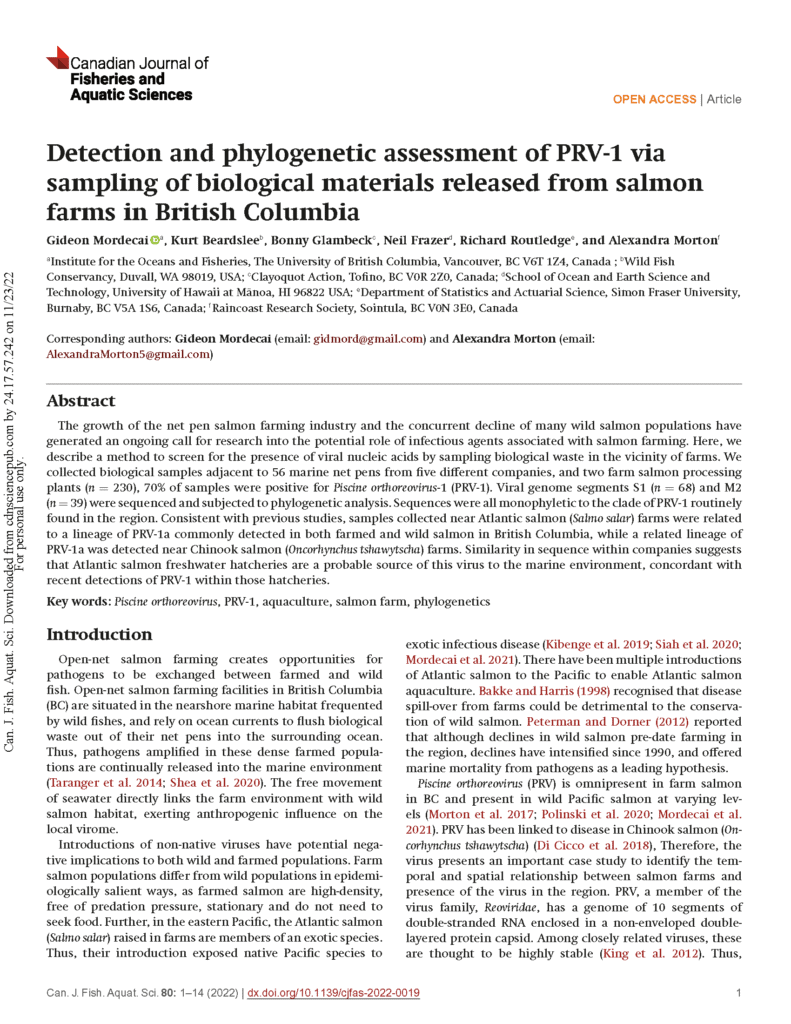
Description |
|---|
Lack of access to salmon in farms has impeded research into the impact of disease transmission from salmon farms to wild salmon. To address this a group of researchers developed a novel approach. Using a fine net, they captured fragments of farm salmon waste including tissue, scales and feces drifting out of the net pens. These samples were tested for the Atlantic virus, Piscine Reovirus (PRV). The study published in the Canadian Journal of Fisheries and Aquatic Sciences revealed the 2018-2020, with assistance from Clayoquot Action, Wild Fish Conservancy and the Sea Shepherd Society, farm salmon waste was collected from 56 farms owned by five different Sequencing of the viral genomes revealed that PRV in the waste collected near Atlantic salmon farms is related to a lineage of the virus commonly detected in both farmed and wild salmon in British Columbia. The sequencing data found that the lineage of PRV was often similar in farms owned by the same company. This suggests freshwater salmon farm hatcheries may have been a source of the infection. Additionally, the study corroborated a previous genomic surveillance finding that the PRV infecting Chinook salmon farms off Tofino is distinct from the virus which infects the majority of Atlantic farms. Chinook farms share the same lineage of PRV typically found in Chinook salmon from Columbia River hatcheries. Of concern, this study also documented genomic variation not previously been detected in the region; evidence that the virus is mutating on salmon farms. From press release by Raincoast Research: Press Release CJFAS paper |
File Attachment |
|---|
Download |
Join our mailing list to recieve important updates on our work, the latest wild fish news, & opportunities to take action to support wild fish.
This site is protected by reCAPTCHA and the Google Privacy Policy and Terms of Service apply.
Wild Fish Conservancy is recognized as a 501(c)3 non-profit by the IRS